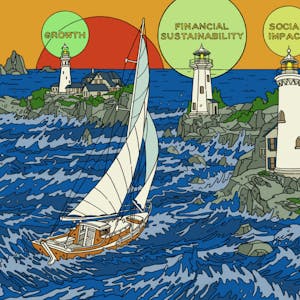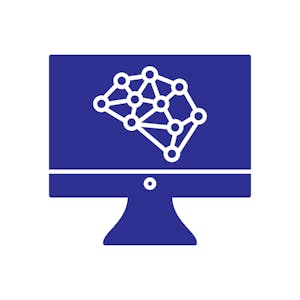Social Impact Strategy: Tools for Entrepreneurs and Innovators
About this Course
This course offers an introduction to social impact strategy and social entrepreneurship, including key concepts, an overview of the field, and tools to get started as a changemaker. Students will learn how to innovate and design new ideas and new organizational forms to implement those ideas. Students who take this course will be better prepared to launch social impact organizations of their own invention. By moving through four stages, Define, Design, Pilot, and Scale, students will turn their passion for changing the world into concrete plans for launching a nonprofit or for-profit venture designed to achieve a social goal. This course will allow students to systematically think through problems; develop and test an innovative solution; assess risk, competition, and performance; and spread impact in a way that is financially sustainable. Students who complete the course become eligible to apply for an in-person educational experience, called the Global Social Impact House. GSIH is a seven-day residential program that provides fellows with the tools, community and training they need to advance their ventures. Workshops are customized to the needs of fellows and explore advanced concepts in business models, design thinking and leadership. The program is also designed to help fellows build meaningful, global connections while living together in an inspirational host location. For more information on the Global Social Impact House, please visit:Created by: University of Pennsylvania

Related Online Courses
In an age now driven by \"big data\", we need to cut through the noise and present key information in a way that can be quickly consumed and acted upon making data visualization an increasingly... more
This specialization is intended for students who wish to use machine language to analyze and predict product usage and other similar tasks. There is no specific prerequisite but some general... more
In this course, we will present atomic bonding and its relation to crystal structure and physical properties. A particular focus will be on the different types of cubic structures. There will be an... more
In this course, you will learn about Model-Driven Programmability and its use of YANG data models to provide a standardized way to access network devices and their capabilities. You will be... more
This course is designed for business professionals that want to learn how to determine if a business issue is appropriate for a data science project and apply the data science process. The typical... more







